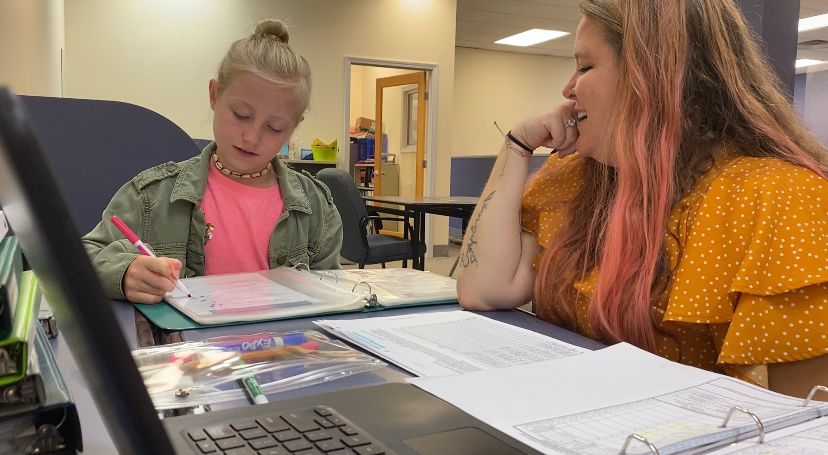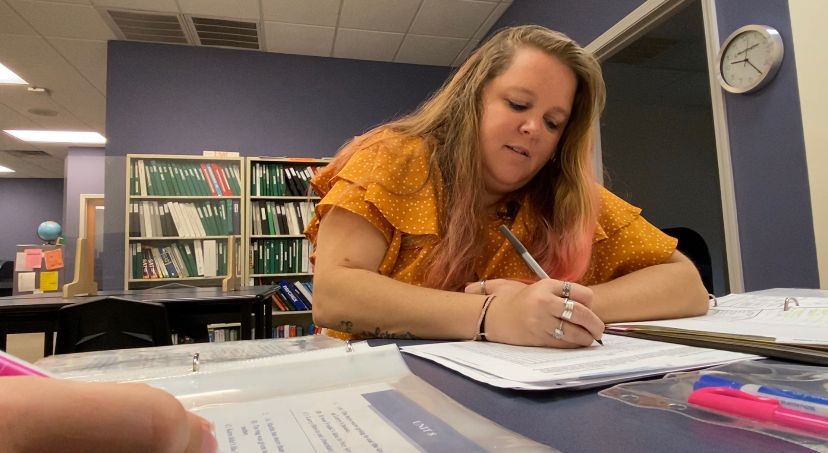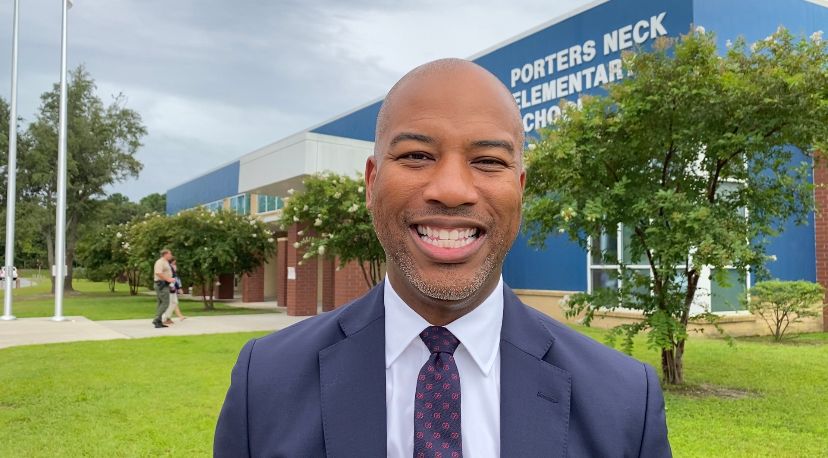NEW HANOVER COUNTY, N.C. — Kids are heading back to school in New Hanover County, and the hope is that this year will feel a little more normal.
Students have the option of wearing a mask, and teachers won’t be enforcing social distancing. But one thing that still hasn’t changed from the pandemic is the learning loss that some of those students have had to deal with.
What You Need To Know
- The United States Department of Accountability Office says that more than half of educators teaching virtually reported their students had more difficulty learning during the pandemic than during typical school years
- Tutors at the Huntington Learning Center in Wilmington report problem areas in math and reading
- New Hanover Schools will be providing professional development to teachers to help them meet students where they’re at
Tutors at the Huntington Learning Center say they’ve been seeing students struggle with math and reading since the pandemic — something they say is from students learning virtually over the past two years.
Aly Robertson, a tutor at the center, has seen those problems firsthand and has been working with students to help them catch up before the new school year. She’s always wanted to help students learn.
“So I was a first grade teacher for six years. I kind of lost my passion for it, but I still wanted to teach, and I still loved working with kids,” said Robertson. “I used to work at Huntington before I started teaching, and so I came back, and I’ve kind of just been falling in love with teaching again.”

After COVID-19 disrupted classrooms and students’ educations, Robertson knew she would have her work cut out for her.
“A lot of them had what we call ‘COVID kindergarten,’ where they learned the alphabet and letter sounds virtually,” said Robertson. “And that’s not the easiest thing to do, to learn to read virtually - and so a lot of our younger kids are really still struggling even going into third grade.”
Learning virtually has taken its toll on students, and many of them have had to put in extra work outside of the classroom to make up for it. Robertson said that although students come in struggling, with time and effort, they can get back on track.
“They’ve really just struggled with picking up words, so you know they’ll stay in the lower end for so long, and then all of a sudden it’s like they know every single word,” said Robertson, “Or like in our phonics program, it’s like something that they’ve been really struggling with and then all of the sudden, like words that are really hard for them are really easy, and it’s like they don’t even hesitate to read it. They just read it, and we’re just like ‘woah, how did you know that word?’”

Although it’s already rewarding to see these students grasp concepts that have escaped them these past couple of years, Robertson is most proud of helping students feel more confident in their abilities. She hopes that with that confidence, they’ll be able to love learning for the rest of their lives, just like she does.
“As a kid I always loved school, and I loved reading. I loved going to school, I loved everything about school,” said Robertson. “When I was in middle school, I started to not like it anymore and I don’t ever want a kid to feel that way.”
Dr. Charles Foust, the superintendent of New Hanover County Schools, says that they’re working hard to make sure those learning gaps are closed.

“We’re seeing patterns and gaps across the state, but we’re focusing, our goal of course, we have our instructional framework, and so that’s where we’re gonna attack it,” said Foust. “[We’ll] look at the gaps and provide, as I’ve stated before, professional development to assist our teachers in making sure that they are well prepared to decrease those gaps.”
Although New Hanover County Schools is helping students get back to a feeling of normalcy in the classroom, they acknowledge that the threat of COVID-19 is still real. Testing, ventilation and cleaning measures are still being taken to prevent the spread.






